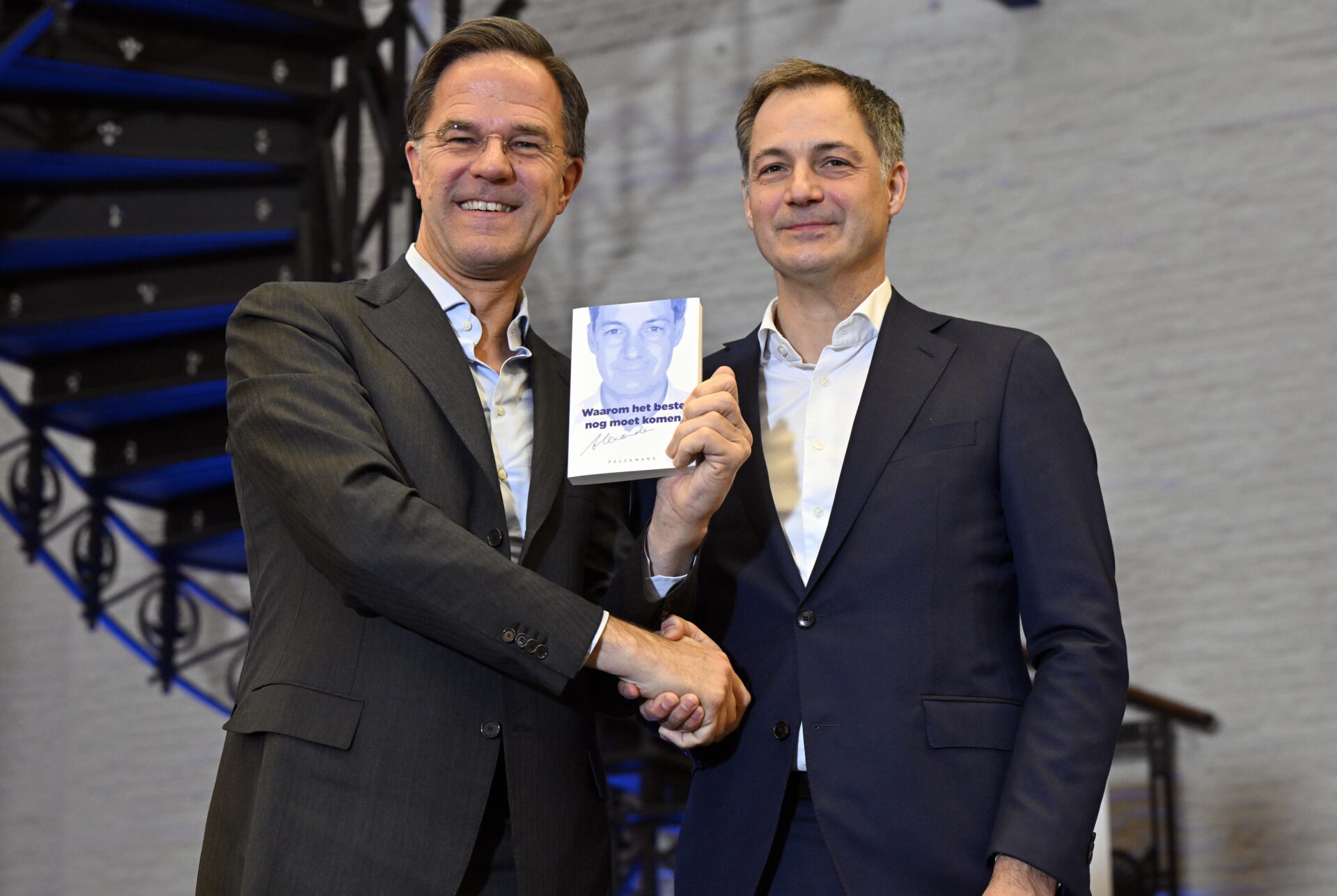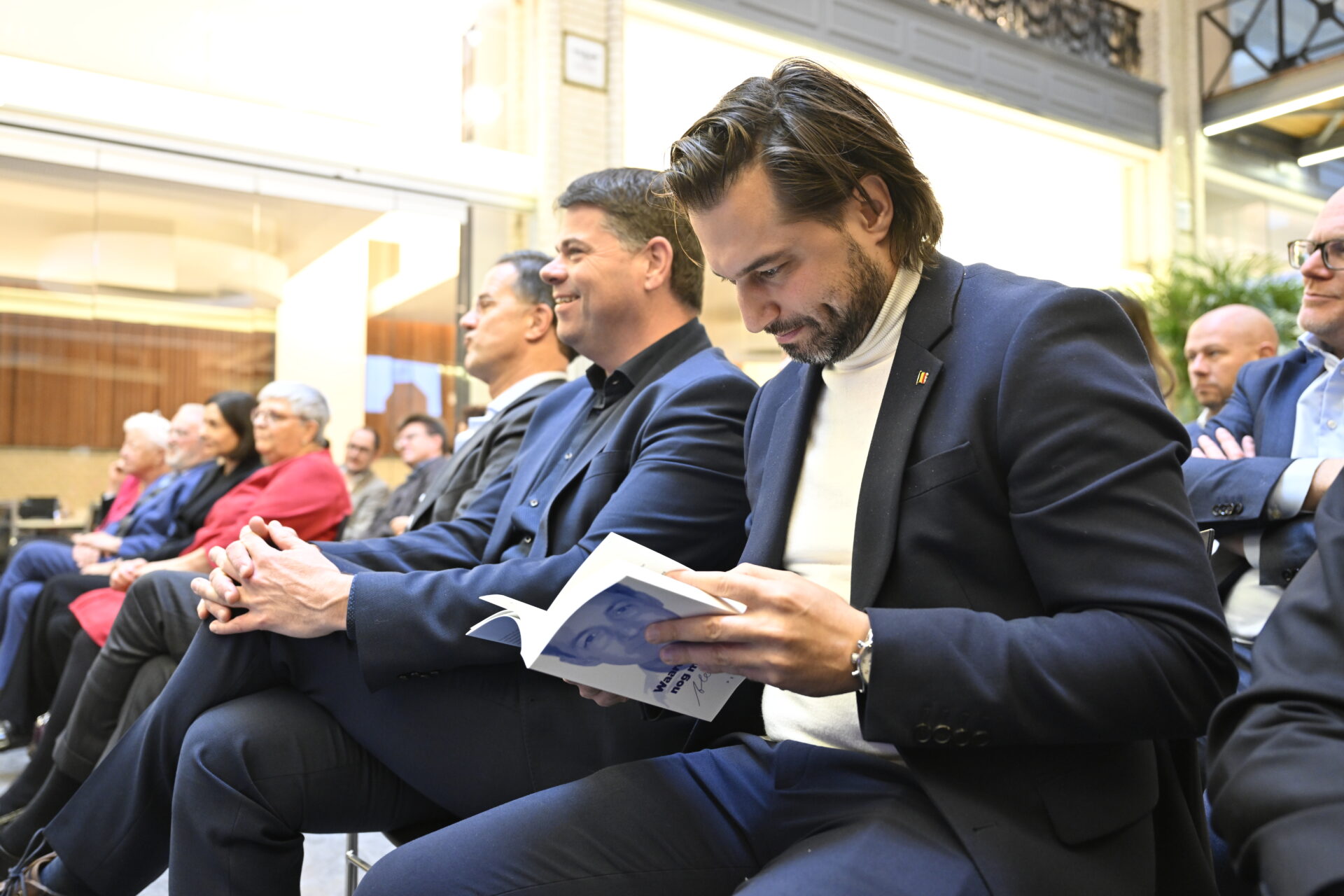Crises can only be resolved if there is cooperation and people trust each other, says Belgian Prime Minister Alexander De Croo in his new book 'Waarom het beste nog moet komen' ("Why the best is yet to come" in Dutch).
The Belgian leader presented the book earlier this week at his party headquarters, with the launch also attended by Dutch Prime Minister Mark Rutte.
In the book, De Croo argues how cooperation pays off, using concrete cases such as his close cooperation with Federal Health Minister Frank Vandenbroucke during the pandemic, or the roles of then-Foreign Affairs Minister Sophie Wilmès and Defence Minister Ludivine Dedonder for the repatriations from Afghanistan in August 2021.
"The constant stream of negative self-pity" in Belgium should stop, seems to be De Croo's key message. While he does not mention the leader of the Flemish rightwing N-VA party Bart De Wever by name, it is clear that the Prime Minister is targeting De Wever's harsh analysis of the ongoing Belgian failure as a way to talk the country down.
[caption id="attachment_817795" align="alignnone" width="1920"] Prime Minister of the Netherlands Mark Rutte and Belgian Prime Minister Alexander De Croo pictured at the book presentation.
Credit: Belga / Eric Lalmand[/caption]
Prime Minister of the Netherlands Mark Rutte and Belgian Prime Minister Alexander De Croo pictured at the book presentation.
Credit: Belga / Eric Lalmand[/caption]
Going back to his "team of 11 million" approach during the Covid-19 pandemic, De Croo recognises that Belgium is not perfect, but insists that it is also "not the socio-economic hellhole that some make it out to be."
Related News
- A new Belgium? De Croo launches new international branding campaign
- 'It criminalises Western society': De Wever launches scathing attack on 'wokeism'
Six months before the elections, this book is a clear attempt by De Croo to reposition and launch himself and his Flemish liberal Open VLD in the election campaign. The party has had a tough period lately, with Justice Minister Vincent Van Quickenborne's resignation as the latest headline in a series of internal problems.

MR leader (Open VLD's French-speaking sister party) Georges-Louis Bouchez reading the book. Credit: Belga / Eric Lalmand
With his decidedly pro-Belgian story, De Croo is seemingly trying to be an alternative to De Wever's slogan of "Flemish prosperity," by focusing on a country- and even EU-wide prosperity less bound by borders with a series of recent innovative Belgian successes.
He also opposes the fragmentation of powers into Belgium's six governments and looks to the hierarchy of standards as it exists in Germany. "In order for Belgium to work better and more efficiently, we must become more rather than less federal."
The book is De Croo's second one, following "The Age of Women: Why Feminism Also Liberates Men" in 2019.

